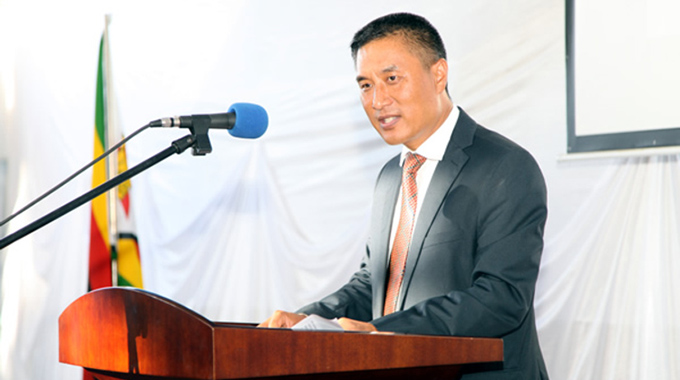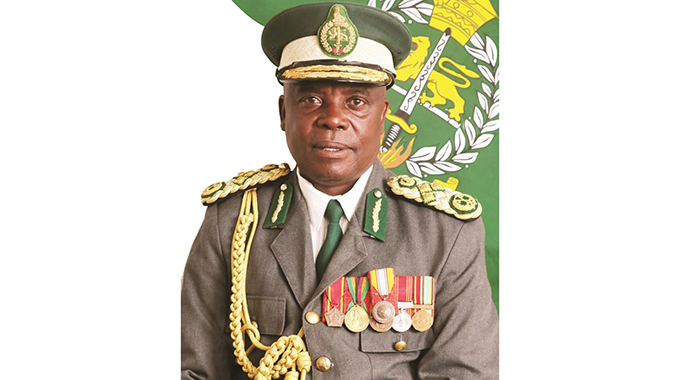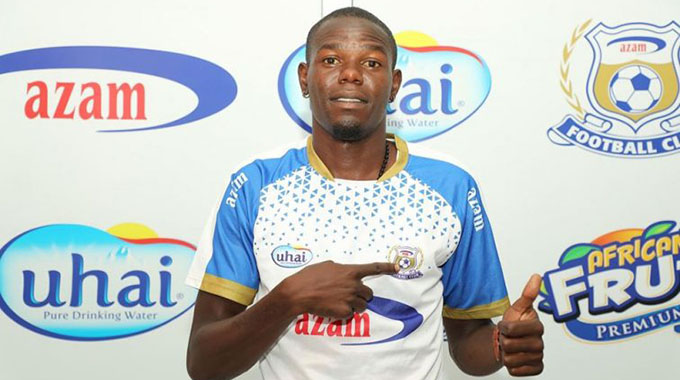India charmed by Second Republic

Fungi Kwaramba The Interview
Zimbabwe’s Open for Business policy has opened Zimbabwe to more investors, with the country poised to make strides towards achieving its Vision 2030. Our Political Editor Fungi Kwaramba (FK) spoke with Indian Ambassador to Zimbabwe Mr Rungsung Masakui (RM), who shared his views about the two countries’ relations. Below are excerpts of the interview.
FK: Congratulations on the India Day celebrations, tell us more about the significance of this day.
RM: Every year we celebrate our Independence Day, which came in 1947 on August 14. On Saturday, we celebrated the 74th anniversary of India’s Independence. Just as in any other country, it is a very important day on our calendar because it is a day when we got our freedom after many years of foreign rule.
So many people sacrificed their lives in order for us to have our independence, we lost so many heroes. On this day, we celebrate the sacrifices made by the freedom fighters, something that gave birth to modern India and which saw us taking control of the economy.
We were a very poor nation, now we are having a surplus of grains, we have made strides in power generation in science and infrastructure and in the medical field.
FK: What lessons can Zimbabwe draw from India?
RM: I don’t want to talk about lessons learnt from India only, but also from Zimbabwe. Yes, we are older than Zimbabwe and we have made strides or efforts in improving the lives of our people, if we succeed, we can reciprocate in other countries and where we have made mistakes, our friends can also learn from that.
For instance, the pharmaceutical industry is one of the biggest industries and very important for all of us. India is one of the countries that is seeking a Covid-19 vaccine and we are making our best effort to finding a vaccine and I can assure you that if we find a vaccine, it will be cheaper and accessible to all nations.
Our fatality rate is one of the lowest in the region, despite the challenges brought by Covid-19, we are also helping other nations, including Zimbabwe, during the dark period because we believe in brotherhood. Though we have our own issues, we cannot confine ourselves to our own people, we also reach out to the world.
FK: Tell us how you have tackled the Covid-19 pandemic and the repatriations that you have carried out.
RM: We have carried out the biggest repatriation exercise, because our people are spread around the world. We have repatriated more than one million of our people. Apart from that, we have also assisted people to go back to their countries. Here in Zimbabwe, we don’t only take our people back home, but we also assist Zimbabweans to come back to their country. There are many Zimbabweans who are in India on various programmes. We have scholars who have gone to India for courses of two to three months and now they are stuck there, we will help them come back to Zimbabwe. We facilitate that with your embassy in New Delhi and this is sponsored fully by the Government of India.
FK: You are the world’s biggest democracy, how do you manage this vis-à-vis criticism of alleged human rights abuses from some countries?
RM: Last year, we included the province of Kashmir to the rest of India and there was a lot of criticism, but we did it for the good of our people. Before that, they did not enjoy rights that other people of India enjoy today. This has brought so many benefits. There is a provision in our constitution which gives compulsory education up to 14 years. It was there for other provinces, but it was not there for Kashmir. Women have the right to their inheritance, but that was not applicable to women of this province. Only a few elites benefited from the previous system. Indians in the province who were not Muslims were ejected from the province and that also had to stop.
FK: Tell us about the bilateral ties between Zimbabwe and India.
RM: India and Zimbabwe enjoyed very friendly relations even before Zimbabwe got its independence in 1980. The history goes back to many centuries — we were trading gold, fabrics and textiles before the colonialists came to Zimbabwe. Maybe the word Shona came from sona in the Indian language which means gold. This just shows you the extent of the relationship between the two countries.
Post-independence (1980), India was one of the first countries to open its embassy here. At one time more than 120 Indian engineers came to Zimbabwe to work on the Hwange Thermal Power Station because the colonialists had taken all their manpower, the engineers are still assisting up to this day.
FK: How have you responded to the Second Republic’s re-engagement initiative and its Open for Business policy?
RM: Re-engagement is for countries that have disengaged from Zimbabwe, we have always been engaged with Zimbabwe. We have always been with Zimbabwe, and we will always support the country. We are going to widen and deepen our relations as the door has been opened for investment.
The depth and width of our relations has grown, but it does not reflect on trade because in the last 20 years, Zimbabwe has been going through a difficult economic situation, but this will certainly improve.
FK: Do we have more companies from India that are coming to invest in Zimbabwe?
RM: We have smaller ones coming apart from the big ones that have come. Investment has grown in Zimbabwe since 2017, it has been going up, most of the investors are in mining and solar energy. Over the past three or four years, there has been more than 200 percent increase in investments in Zimbabwe.
FK: How has India dealt with the issue of fake news and social media abuse?
RM: There has been debate on issues around social media in India, on how to deal with fake news. You need to balance because being a democratic there are provisions for the right to freedom of expression and speech, but you need to balance with other issues, especially negative aspects.
The social media in India is regulated by the Information Technology Act, which was enacted in the year 2000 to regulate, control and deal with the issues arising out of the IT. Thus social networking sites in India are liable for various acts or omissions that are punishable under the laws of India.
FK: India is one of the biggest players in the international diamond industry, how have you been able to stay on top of the game?
RM: Surat District is responsible for cutting and polishing 93 percent of world’s diamonds. People living in that area have a particular skill for cutting and polishing diamonds and the majority of the world diamonds go there. The diamonds are not lifted from India, but the diamonds are lifted by Indians based in Dubai. They come from places like Zimbabwe and routed through Dubai. According to figures from the Indian Ministry of Commerce, around US$15 million worth of diamonds from Zimbabwe are cut and polished in that district.
FK: Any last words Mr Ambassador?
RM: India is carrying out several projects in Zimbabwe, including the expansion of the Hwange Thermal Power Plant. India has approved projects for the upgrading the Bulawayo Power Station, among other several projects that are awaiting to go to tender. We have been supplying medicine and we have been donating medicine since the Covid-19 started. We are also going to donate 10 ambulances and one million tonnes of rice that will come to Zimbabwe at the end of September.







Comments